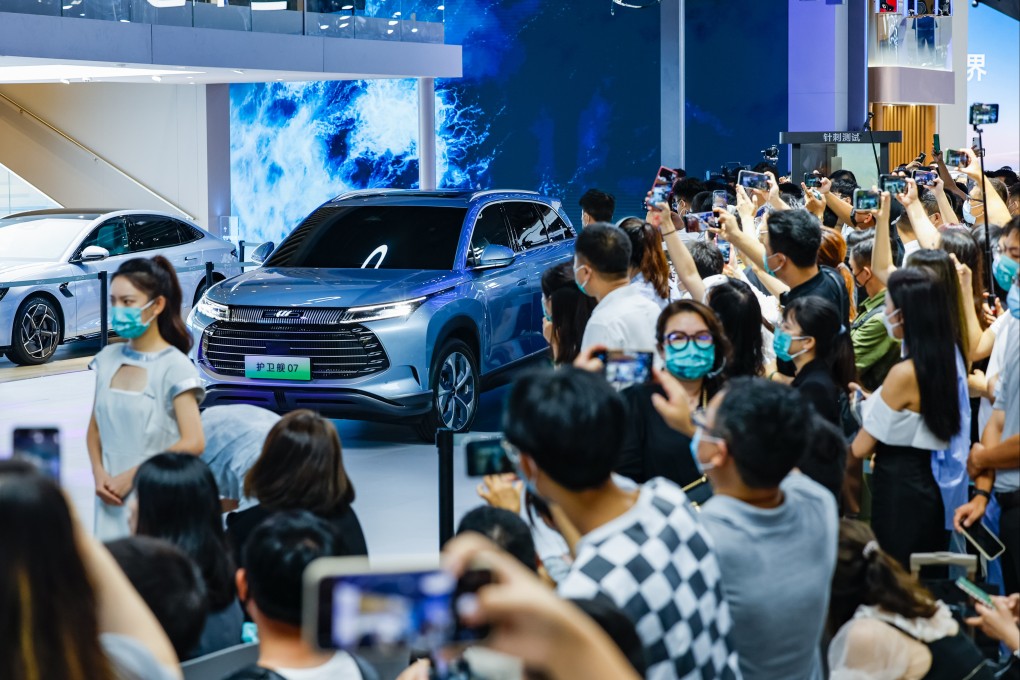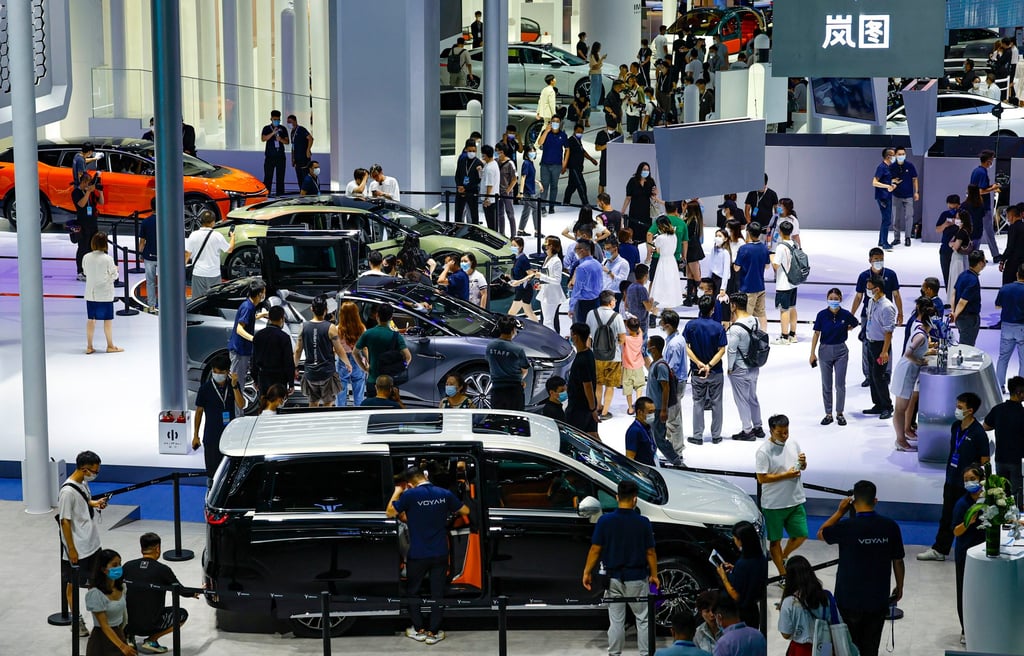China EV makers including Nio, Xpeng, Li Auto take Covid-19 hit as outbreak closes Chengdu car show five days early
- The closing also impacts the marketing plans of emerging EV builders such as WM Motor, Aiways, and Evergrande New Energy Vehicle Group
- The industry is struggling to regain traction after losing 1 million vehicles worth of production to supply-chain disruptions earlier this year

The 10-day Chengdu Motor Show, originally expected to run through September 4, ended on Tuesday as local authorities banned all kinds of events to avoid crowding amid a flare-up in coronavirus cases. The show had drawn 128 brands, which were exhibiting 1,600 models.
“A shortened auto show represents another setback for China’s carmakers this year since their marketing and sales activities will be disrupted,” said Eric Han, senior manager at business advisory firm Suolei in Shanghai. “Smart EV start-ups that plan to lure more customers with their fancy new models appear to be the main victims.”
Chengdu, capital of southwestern China’s Sichuan province, recorded more than 450 Covid-19 cases between August 25 and 29, prompting the city government to double down on pandemic curbs in accordance with Beijing’s zero-Covid strategy.
